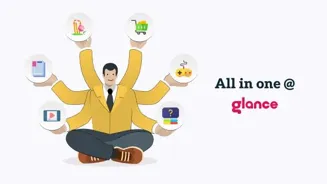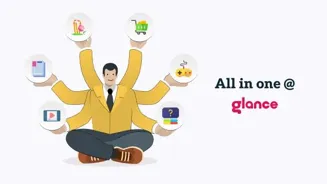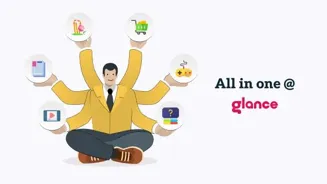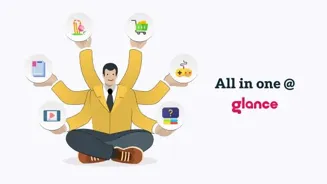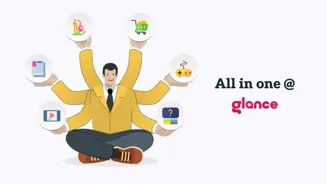Unlock the potential of feedback for personal growth. Learn to embrace critiques constructively. Read more for insightful tips
In the bustling landscape of our daily lives, where we juggle work, relationships,
and personal aspirations, feedback often emerges as a necessary but sometimes unwelcome companion.
Whether it's a performance review at the office, a suggestion from a friend, or a comment on social media, critique can sting. However, if we learn to view feedback not as an attack but as a valuable tool, it can unlock tremendous potential for personal and professional development.
Let's explore how to harness the power of feedback constructively.
Feedback challenges due to ego defense; manage reactions for growth
One of the primary reasons why feedback can be challenging to receive is that it often triggers our defenses. Our ego, that part of us that wants to protect our sense of self-worth, kicks in.
We might immediately jump to justify our actions, find fault with the person giving the feedback, or dismiss the comment altogether. To truly benefit from feedback, we must first learn to manage these initial reactions.
Take a deep breath, acknowledge the discomfort, and consciously choose to listen with an open mind. Remember that feedback is simply information; it's what we do with it that matters.
Receiving varied feedback: constructive, vague, negative. Differentiate for growth
The type of feedback we receive can be varied. Sometimes, it is constructive, offering specific suggestions for improvement. Other times, it is vague, leaving us wondering what exactly we need to change. And occasionally, it can be downright negative or even malicious.
Learning to differentiate between these types of feedback is crucial. Constructive feedback is a goldmine; embrace it and dissect it carefully. Vague feedback requires further inquiry. Don't hesitate to ask for clarification or examples to understand the underlying message.
As for negative or malicious feedback, learn to filter it out. Not all opinions are created equal, and it's essential to discern what is genuinely helpful from what is simply noise.
Active listening key for feedback: focus, understand, ask clarifying questions
Active listening is a critical skill when receiving feedback. This means paying full attention to the speaker, trying to understand their perspective, and refraining from interrupting or formulating a response while they are talking.
Instead, focus on truly hearing what they are saying and asking clarifying questions.
For example, if your manager says, "Your presentation could have been better," you might ask, "Could you give me some specific examples of what I could improve for next time – was it the data, the visuals, or my delivery?" This shows that you are engaged and genuinely interested in learning.
Reflect on feedback received for personal growth
Once you've received feedback, take the time to reflect. Don't react immediately. Consider the source, the context, and your own feelings about the critique. Ask yourself: Is there any truth to what was said? Is this a pattern I've heard before? Is this feedback aligned with my own goals and values?

This process of reflection allows you to process the information objectively and determine what actions, if any, you need to take. Journaling can be a helpful tool during this stage.
Writing down your thoughts and feelings can provide clarity and help you identify recurring patterns or areas for improvement.
Personal growth is a journey, not a destination. Incorporate feedback, set realistic goals, and seek help
Finally, remember that personal growth is a journey, not a destination. Incorporating feedback is an iterative process. Don't expect to become perfect overnight. Set realistic goals, focus on small, incremental changes, and celebrate your progress along the way.
Seek out opportunities to practice new skills and solicit feedback from trusted sources. Also, don't be afraid to ask for help. If you're struggling to implement changes, consider seeking guidance from a mentor, coach, or other professional.
The ability to receive and act on feedback effectively is a superpower that will serve you well in all aspects of your life.
Critique as valuable tool for personal growth and success
In the vibrant tapestry of our daily routines, critique often presents itself as a necessary, yet sometimes daunting, element. Ranging from workplace evaluations to friendly advice, feedback may initially sting.
However, if we approach it as a valuable resource rather than an opposition, it can unlock significant potential for both personal and professional advancement. Let's uncover the art of utilizing feedback constructively.
Feedback varies; crucial to distinguish helpful from harmful remarks
Feedback can be varied. There might be useful suggestions for change. It also may be unclear, leading to us ask exactly what we need to do. At times, it may be negative, maybe to make us feel bad. Being able to discern the kind of feedback is critical.
Helpful advice is gold; it's important to absorb this carefully. Unclear comments need questioning. Don't be shy, ask for examples/clarification to grasp the idea. With bad remarks, just let it go. Keep in mind that not all comments are helpful - learn to seperate good from bad.
Listen actively without interrupting to show you're serious about learning
Pay attention, listen the speaker, and try to understand the speaker. Please refrain from interrupting, or figuring a response out as they talk. Try your best to hear what they are saying and clarifying.
For example, if your supervisor comments, "Your presentation was bad", ask, "What are some particular points I can work on next time? Were the data, or visuals weak?". This displays that you are serious about learning.
Reflect on feedback to improve your growth mindset
When you get feedback, take time to think it over. Don't react instantly. Wonder about the source, the situation, and reflect your own views about the critique. Ask: Is there any truth to the feedback? Reflect on whether this is a typical issue. Also wonder if this feedback matches your aspirations.
This lets you process the details fair, and decide what to do. Writing your feels is useful at this point. Writing down your ideas provides insight, and helps you point out improvements.
Personal growth is a continuous journey of improvement and learning
Personal development is a journey in progress. Adapting the feedbacks is a repeated thing. Do not hope to be perfect quickly. Set targets that are possible, concentrate on smaller tasks, and take pride in the results. Find ways to try new skills and request feedback/ comments.
Also, don't hesitate to consult guidance. The capacity to take in information effectively is a strength, and will greatly help throughout life's areas.
AI Generated Content. Glance/InMobi shall have no liability for the content